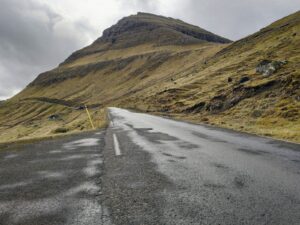UK Government faces court action over climate inaction, again
Having successfully fought the lawmakers and won a High Court Battle, forcing a rewrite of Downing Street’s original net zero policy, organisations are again threatening to serve papers in a bid to speed up climate legislation.
Friends of the Earth, Good Law Project and ClientEarth are working together on a new legal challenge. They claim that the current Carbon Budget Delivery Plan is still not fit for purpose, with time now running out to introduce effective regulations that will have an impact this decade, which many believe is the last opportunity to avoid the worst of climate change.
Key to the case is a perceived failure to conduct a proper risk assessment of policy and proposals in the Plan. Without this, there is a significant chance that schemes and steps will fail, or, worse still, actually have an adverse effect on the situation.
Recent blunders relating to clean energy and domestic upgrades for boilers, and neglecting to focus on more longer-term emissions reductions solutions, such as insulation, along with recent news that ministers want to remove a ban on the development of new coal mines, despite support from the House of Lords, are examples of why there is such concern over a lack of foresight, checks and balances.
The Good Law Project is now taking donations and asking for signatures to support and drive the legal challenge, which is the latest attempt to push the Government into a more climate-positive stance. Red flags have also been raised about the potential for ill-conceived policies to wreak havoc economically. Environment Journal has reported in-depth on the relationship between growth, levelling up, and green industry sectors.
You can find full details of the campaign here.
Elsewhere, Professor Mahmoud Shafiee, Chair in Energy Resilience at the University of Surrey, has also pointed to a lack of commitment to upgrading the UK’s energy infrastructure. Describing current networks and facilities as ‘ageing’, net zero efforts would take a significant step forward with more attention in this area.
‘From the infrastructure development perspective, we are certainly behind plan. We should have two agenda moving together in parallel: one is building and developing new low-carbon energy infrastructure, and another is modernising and upgrading the existing energy infrastructure,’ he said.
‘Much of the country’s existing energy infrastructure is ageing or outdated and unable to accommodate new energy sources and technologies like floating wind, batteries, and hydrogen. On the other side, more push is needed to make low-carbon fuels technologically and economically proven. As an example, hydrogen – as a fuel – is not yet playing a role in our energy landscape due to difficulties in its production, storage and transportation,’ continued Professor Shafiee. ‘Wind energy also requires significant investment in grid infrastructure to transmit electricity. Ship transport still relies on diesel fuels, and that’s where research plays a vital role.’
More on climate and law:
https://environmentjournal.online/features-opinion/eu-sustainability-directive-global-business/
https://environmentjournal.online/energy/clean-energy-methane-laws-alarm-activists/
https://environmentjournal.online/headlines/environmental-law-foundation/
https://environmentjournal.online/climate-change/government-will-not-appeal-ruling-net-zero-strategy-as-unlawful/
https://environmentjournal.online/climate-change/legally-bound-the-climate-litigation-and-contract-law-boom/















